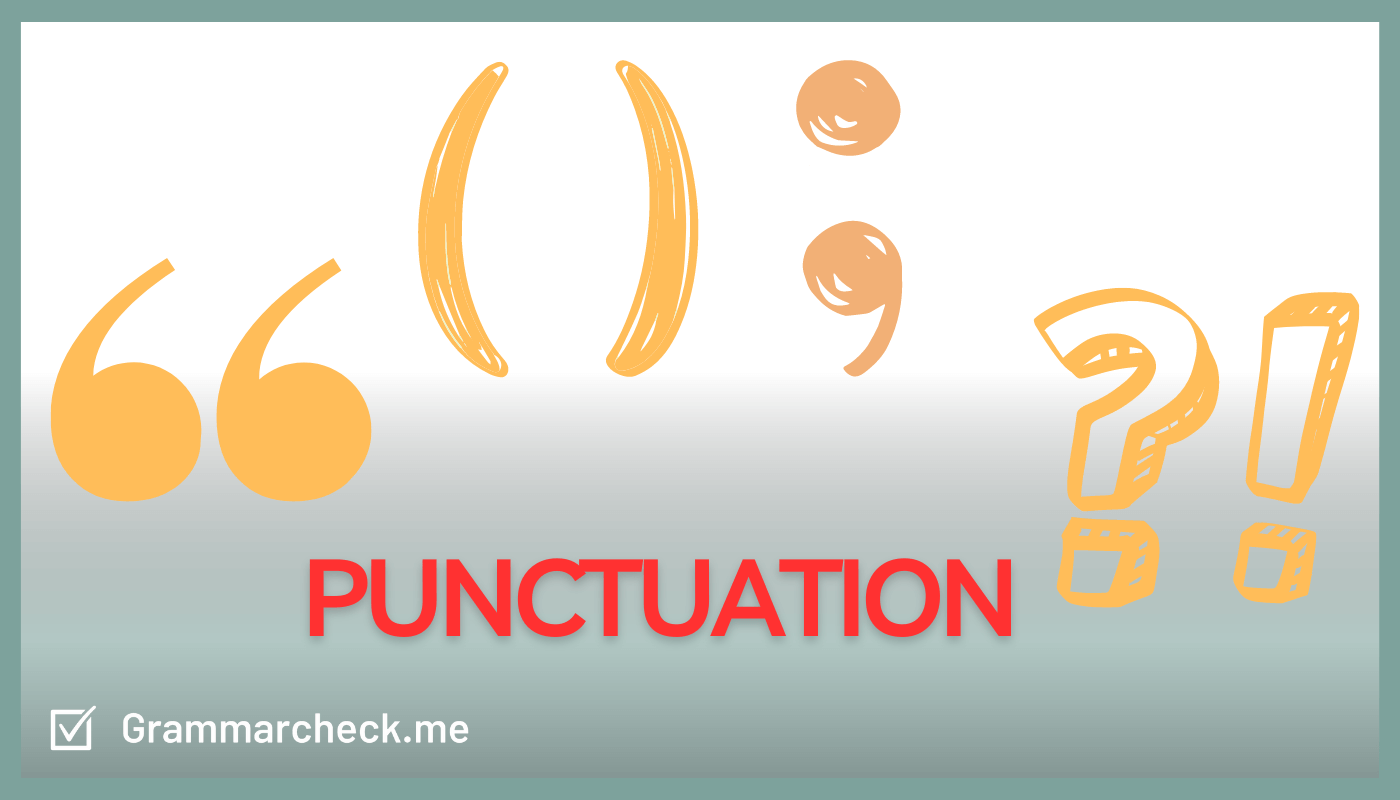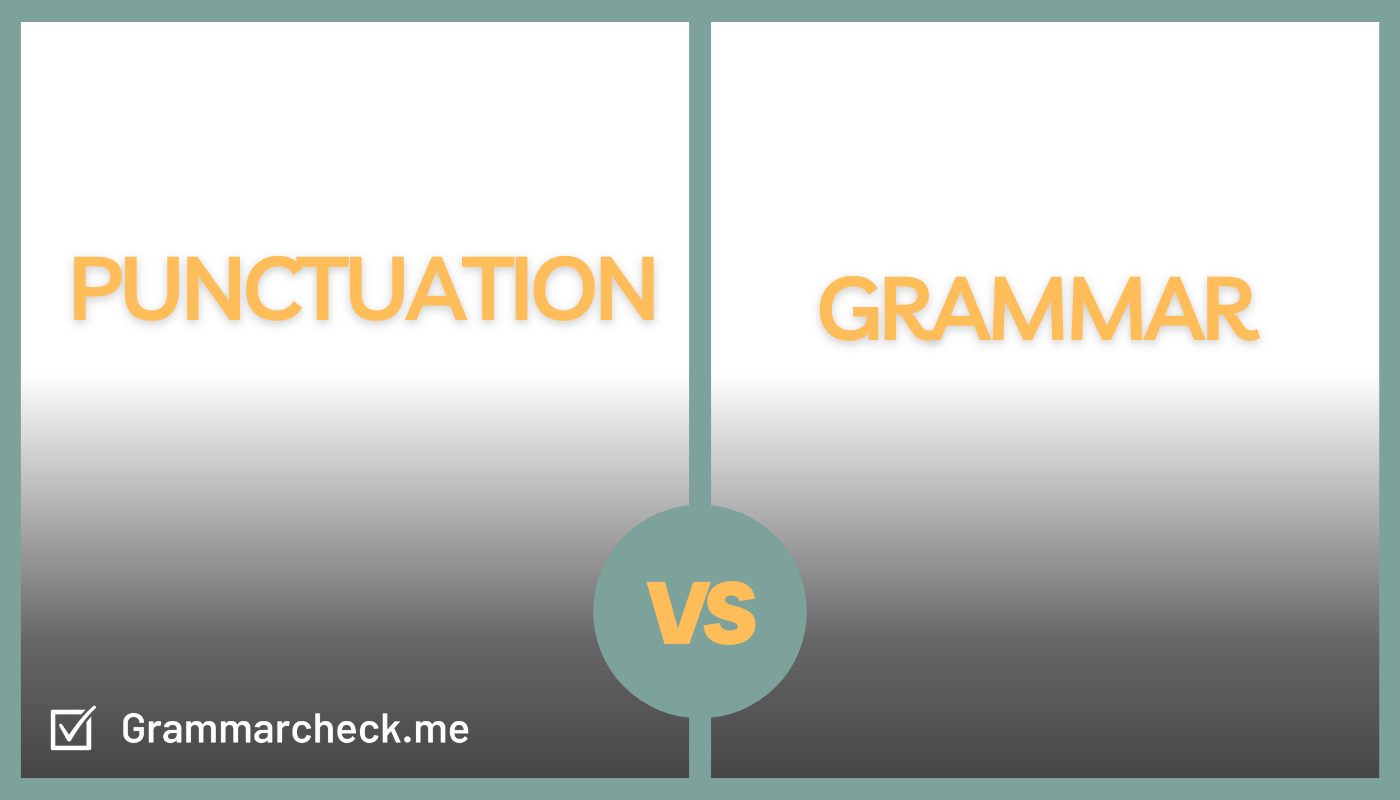Punctuation and grammar go hand in hand, but it’s important to know their differences. Find out about punctuation vs grammar in this article.
Two key components of the English language are punctuation and grammar. However, they each play a specific role in English, and it’s essential to understand each element to improve your writing and communication.
Luckily, you’ve come to the right place to learn the difference between punctuation vs grammar and how the two work together to form valuable and meaningful sentences.
Before getting into the difference between punctuation and grammar, it’s essential first to understand each of these elements individually. Let’s start with punctuation.
What Is Punctuation?

Punctuation consists of a system of symbols used throughout a paragraph or a sentence. Look at the difference between Everyone’s & Everyone to learn more about the impact of punctuation.
Spoken words came before writing, so writing reflects spoken words. Punctuation helps convey meaning through tone that may get lost when taking speech and putting it on a page.
Punctuation completes and enhances a sentence’s meaning by adding emphasis where it needs to be. It does so by strategically separating sentences and words and clarifying their meaning. Take our post about the hyphenation of the phrase “a year and a half” for example.
Each symbol in the system is called a punctuation mark, and there are several punctuation marks in the English language. Here are some examples of punctuation that you’re probably already familiar with:
- Period (.)
- Question mark (?)
- Exclamation mark (!)
- Comma (,)
- Apostrophe (‘)
- Colon (:)
- Semicolon (;)
- Quotation marks (“)
Here are examples of sentences using different punctuation:
- It’s a beautiful day outside.
- That was a fun rollercoaster ride!
- It’s time for dinner already?
If you already know how punctuation rules work, chances are you read each sentence in a different tone simply because of the punctuation. In fact, the punctuation in each of those sentences is interchangeable, but the meaning would be entirely different. Our proofreading review checklist is very helpful to catch simple punctuation mistakes.
While punctuation may be less important in some languages, it is essential in English to correctly convey the meaning of your words.
Here’s an example of two sentences with the exact same words but different punctuation:
- I’m interested in cooking, birds, and traveling.
- I’m interested in cooking birds and traveling.
As you can see, the meaning of the two sentences changes drastically when you remove the commas. That’s why it’s essential to know how to use punctuation. Our post on the different however punctuation rules also demonstrates how to use commas correctly.
Punctuation goes hand in hand with grammar, and you can’t have complete proper grammar without punctuation.
Let’s move on to defining what exactly grammar is.
What Is Grammar?
Put simply, grammar is the placement of words in a sentence. This placement determines the meaning of the words and what they convey. Our post on the difference between Is vs Are perfectly illustrates the importance of propper grammar.
Grammar is the backbone of language and gives meaning to words by arranging them in a specific order. Grammar allows you to form concise, clear sentences that are easy for the receiver to understand.
When the arrangement of words in the sentence is incorrect, or certain English grammar rules need to be followed, the sentence becomes grammatically incorrect. As a result, the person reading the sentence may need help understanding it.
The most basic English grammar concept is that a complete sentence must, at the minimum, consist of a noun and a verb, with some exceptions, starting with a capital letter, and ending with a punctuation mark.
However, grammar encompasses many concepts and rules to ensure that sentences have proper meaning – including punctuation & word choice. Take the difference between manor vs mansion for example!
Let’s look at the similarities and differences between punctuation and grammar.
Punctuation vs Grammar – The Differences

As mentioned, we can say that punctuation is a key part of using correct grammar. Grammar involves the arrangement of words in a sentence but also ensures that the entire sentence structure is sound, a role in which punctuation plays a huge part. In that respect, punctuation and grammar share a common goal of ensuring that the meaning of a sentence is conveyed correctly.
That said, here are some of the key differences between punctuation and grammar.
Overall Focus
Grammar and punctuation both have different meanings, but they also have different focuses.
While punctuation is part of proper grammar, grammar is mainly concerned with words and their placement, while punctuation is concerned with symbols and their placement. That said, it is challenging to separate the two, as they are always present in every sentence!
If you need extra help reviewing the different punctuation & grammar rules, consider using our FREE Grammar Checker to make things easy!
Punctuation Is Important for Writing, Grammar Matters Everywhere
One of the starkest differences between punctuation and grammar is their application.
While they have different applications within the written language, their applications outside of the written language greatly differ. In fact, punctuation does not apply to oral speech at all.
As mentioned earlier, punctuation’s purpose is to reinsert the tone that’s lost when putting oral speech onto paper. Therefore, when you speak, you aren’t thinking about punctuation.
However, grammar applies to both written and oral communication. The arrangement of your words greatly matters when you speak. If you say words in a particular arrangement, those listening to you may not know what you’re talking about.
Therefore, while punctuation is vital for writing, grammar is more important for overall communication.
Frequently Asked Questions
No, grammar and punctuation are not the same things. Grammar is the structure of language and refers to the rules governing how words should be used while communicating. Punctuation on the other hand involves different symbols that create clarity and dictate how to read text.
Punctuation is neither grammar nor syntax. While it does play an important role in written English and other languages, it is not the same as either grammar or syntax.
A comma is a type of punctuation mark. Other popular punctuation marks include periods, apostrophes, hyphens, and more.
The Bottom Line
Understanding the difference between punctuation and grammar is essential, but it’s even more important to know how the two concepts work together in English.
Although good grammar is key for overall communication and punctuation is only important for writing, the two work together to convey meaning how you want it to be conveyed.
If you need help with your grammar or your punctuation in your writing, try a grammar checker like Grammarly to point out your mistakes and ensure that you learn from them.
